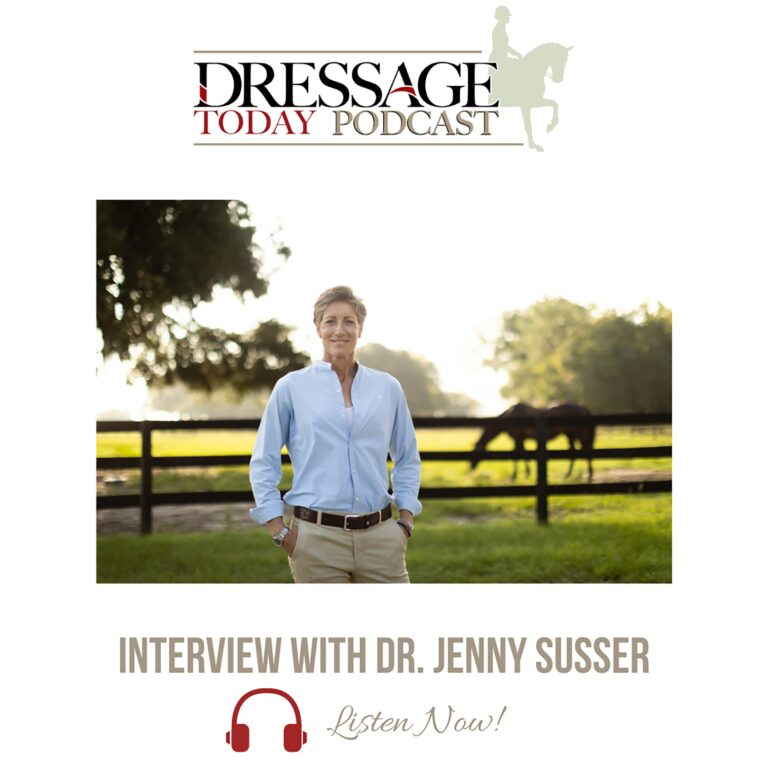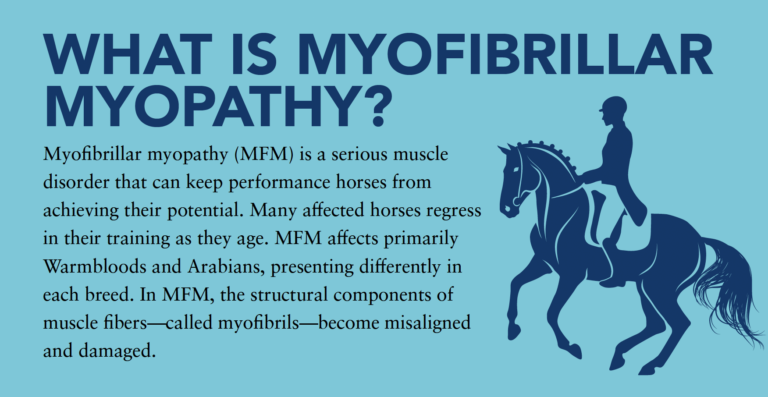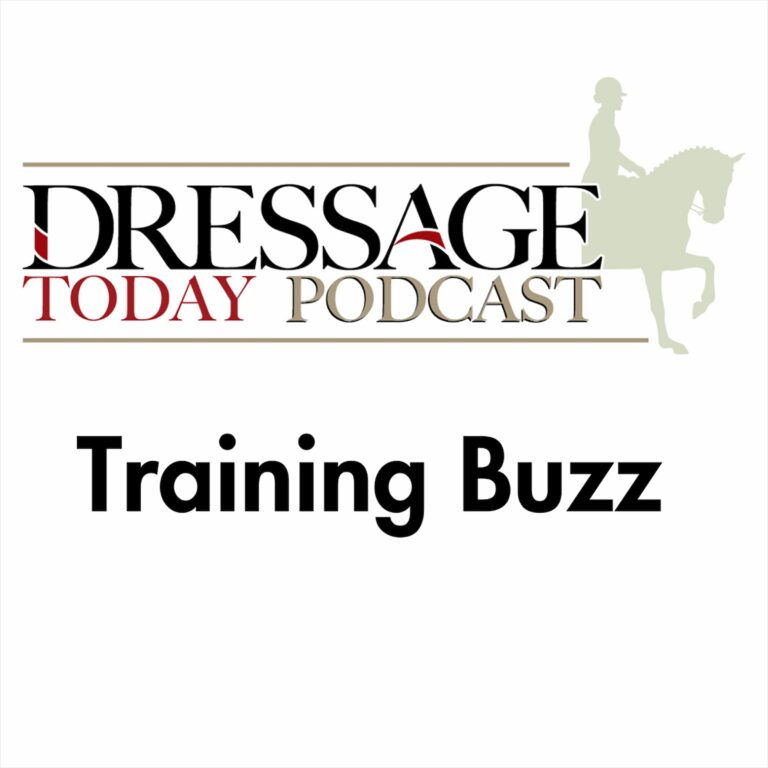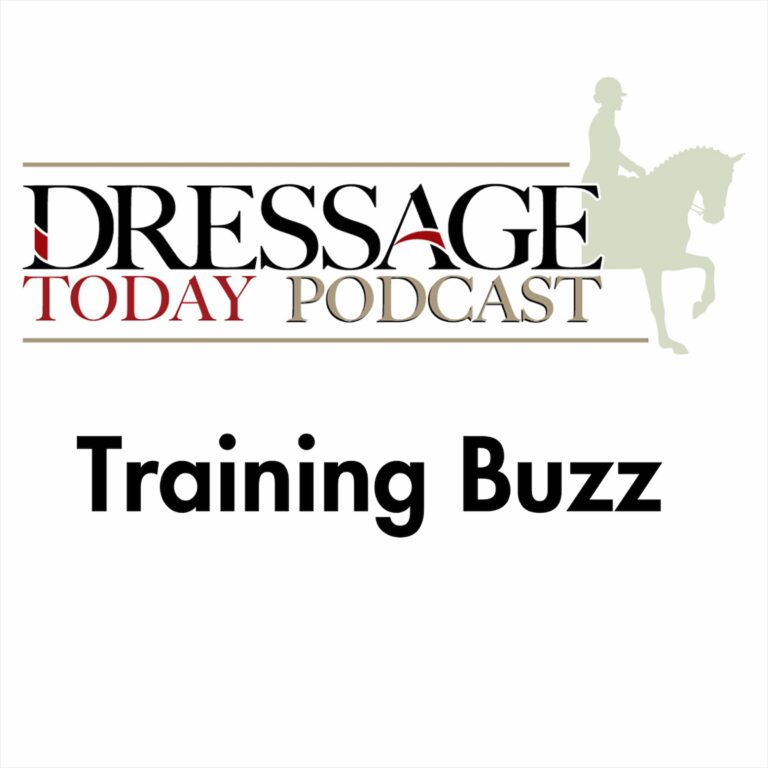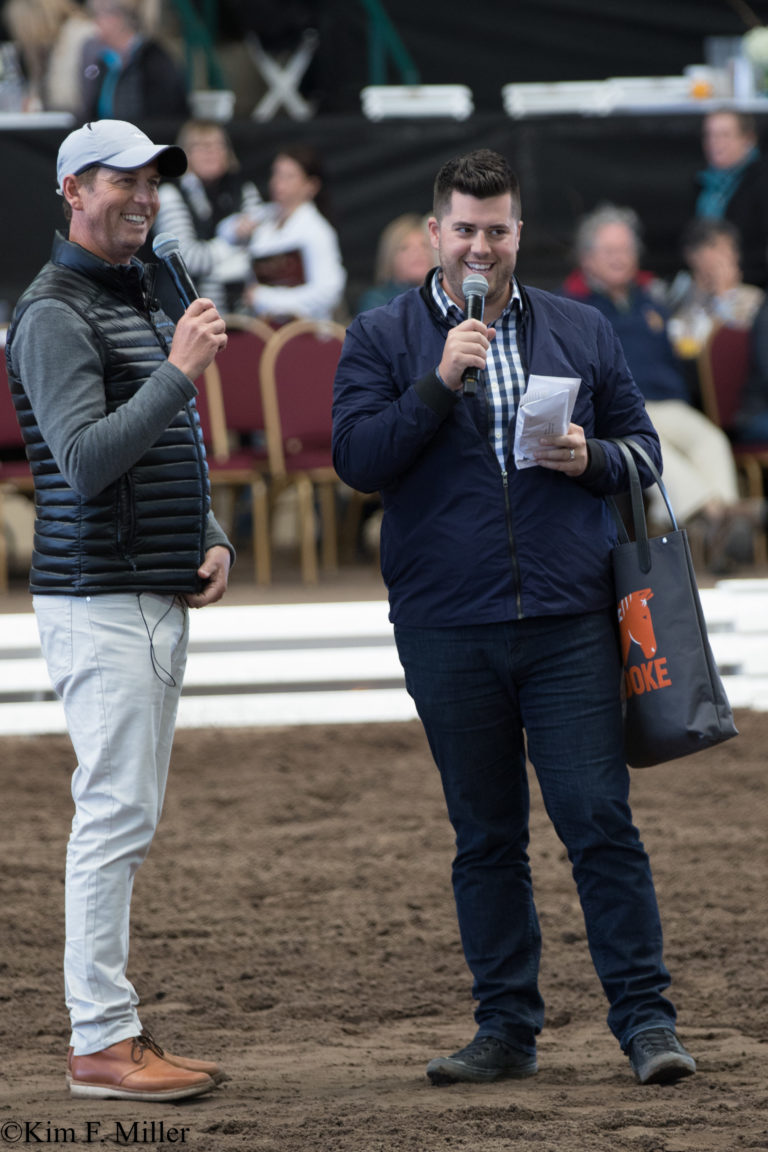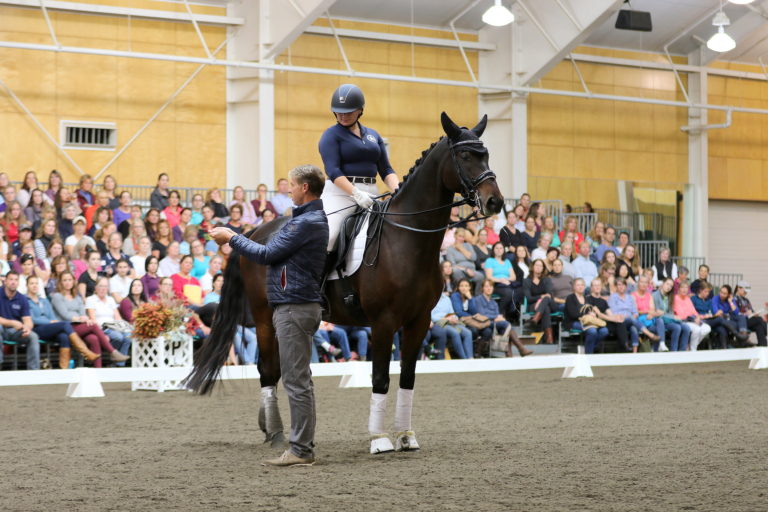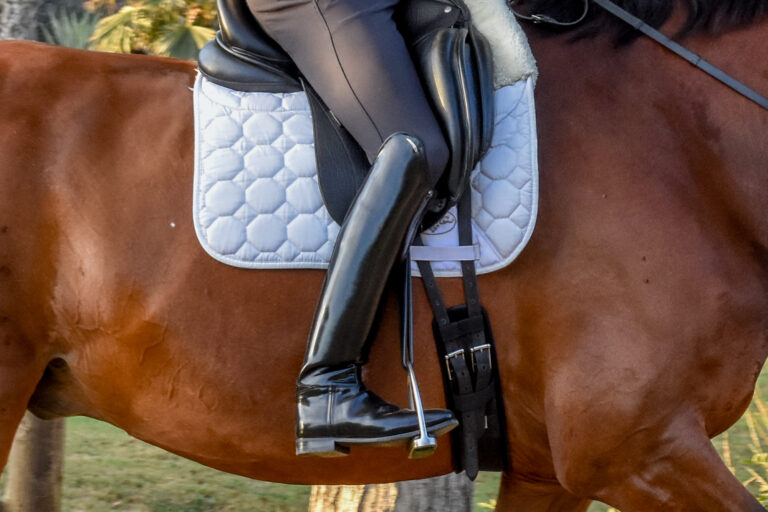Season 2 Episode 6 – Sponsored by SmartPak

[00:00:00] Stephanie Ruff: Hello, I’m Stephanie Ruff. And I’m Aviva Nebesky. We’re the hosts of the dressage today podcast, where you can find us talking about anything and everything for massage related. Our conversations span the world of dressage from leading riders to local level dressage heroes. We’re talking training advice, showing tips and sharing stories to inspire your own dressage journey. So tune in then tack up.
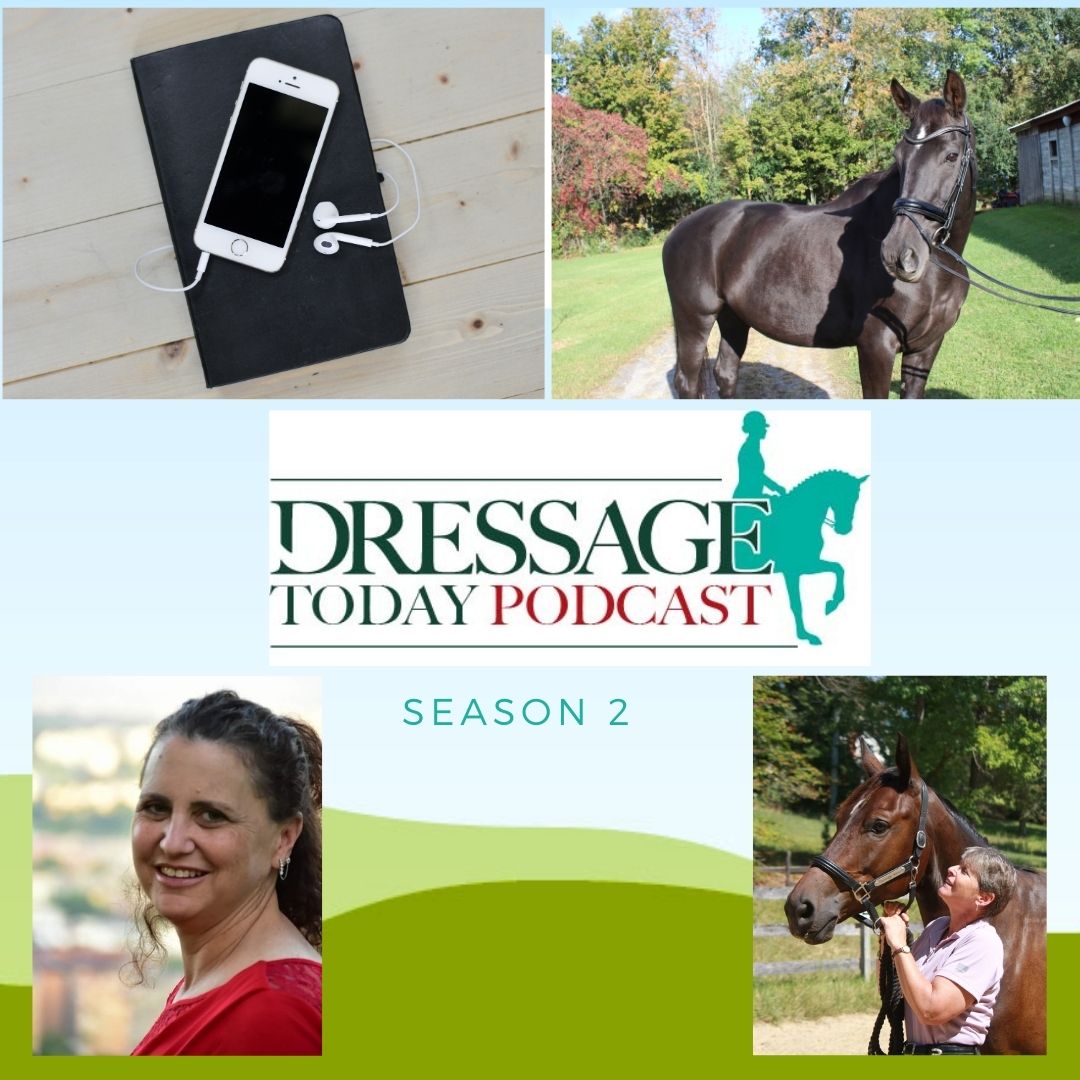
Welcome everyone to the dressage today podcast, we are very excited to be here taking over the hosting roles. I’m Stephanie Ruff content manager for dressage today and practical horseman. I took over this position in January of this year, and I’m absolutely thrilled to be able to combine my lifelong love of horses, dressage and writing into this career.
I’m joined in this adventure by Aviva Nebesky who agreed to co-host with me, despite not [00:01:00] having any podcast experience. Aviva, thanks for going on this journey with me.
Aviva Nebesky: Oh thank you Stephanie. It’s such a pleasure to be here and it truly has been an exciting journey so far.
Stephanie Ruff: Yes it has. We wanted to start this episode off by briefly introducing ourselves to you, the listeners.
So I’m going to start by asking you Aviva. How did you get into horses and into dressage?
Aviva Nebesky: I’m a little bit of an odd ball in the dressage world. I didn’t start riding until I was 32 and I will admit that I am about to be 63. So it’s, been an interesting 30 year journey so far.
I decided to start riding because when I married my husband, his hobbies were computers and airplanes and people thought he was really interesting and we’d go to parties and people wanted to talk to him. And my hobbies were classical music reading and cooking, and [00:02:00] I was dull. So I decided I needed to do something that was a little bit more interesting that would make people want to talk to me.
And there was a barn, big lesson program down the street from me and I went and started riding and it was. I didn’t know anything about riding, but it was an event barn. So we did stadium jumping and cross country and dressage. And I had an unfortunate accident over, a cross country jump and got scared and decided that I would focus myself purely on dressage and 31 years later here I am.
Stephanie Ruff: All right. Coming to horses as an adult, then, obviously, while you mentioned some of the things you focused on prior to your horses, but, what did you do professionally or for a living before you got into them?
Aviva Nebesky: I was a social worker. I worked mostly in physical rehab, did a lot with spinal cord injury and head injury, both of which, are common in the horse world.
Although [00:03:00] interestingly, none of the patients that I worked with during the time that I was working as a social worker were horse related injuries. I find that having spent my. Professional life in social work, learning how to help people cope with various changes to their lives, into the way that they adjust to things has made me a much better instructor and judge, and it has helped me, although I’m still not really good at that thing, they call patience, but it has helped a little bit.
Stephanie Ruff: That always can be a work in progress.
Aviva Nebesky: Absolutely.
Stephanie Ruff: All right. So you are not only a rider and competitor, but you are also a judge. So then how did you get involved in judging?
Aviva Nebesky: I was always last. I would go and compete and I was always last and I had a really nice, horse, and I didn’t understand why I was always last.
So I finally decided that I would try going through the L program to see [00:04:00] if I could understand what it was all about. And I was encouraged by a friend who was a small r and I was lucky enough to find a program that was only about a two hour drive from me. And I got into the first part of it and went up and started the program and did the first session and spent the weekend.
And drove home and said, I have no business doing this. I don’t know anything. I was the only person in my group who wasn’t already an instructor who hadn’t ridden at the FEI level and who had never judged before, but I stuck it out and I had wonderful instructors with the L program and I stuck with it and I passed with distinction and here I am.
Stephanie Ruff: Did you start after doing the L program? Did you start not finishing last anymore?
Aviva Nebesky: I did.. It’s amazing. The L program has been one of the best things that I could have [00:05:00] done for myself in so many regards, but just as a rider, I started to understand what was involved in putting together a test.
And that just because you have a nice horse doesn’t mean that you win the class, that nice gaits don’t guarantee you a seven or an eight, but other things like You know, accuracy and corners and bend and quality of thoroughness. And all of those things really do matter. And sitting at C is one of the most valuable things that any rider can do for herself before she goes into the show ring, just to get an idea of what the judge is actually seeing, not even necessarily what the judge is looking for, but what the judge is seeing.
Stephanie Ruff: That is excellent advice. Perhaps I will. One of these days go through the L program.
Aviva Nebesky: It is so worth it. You should,
Stephanie Ruff: Maybe Iwill. So you have a lovely farm in Maryland. Can you tell us a little bit [00:06:00] about it and , what’s your typical day look like?
Aviva Nebesky: Well, my typical day starts at right now with daylight savings time.
It starts in the dark. And I get up and I go down to my little tiny six stall barn and get all of the horses fed and the cats fed and turn horses out and muck stalls and all that good stuff. And, Sorry, my cat is playing as I’m talking and it’s a little distracting, but I do all of that stuff down at the barn and then head home and have some coffee.
And then I get started with my day and my day, depending on what day of the week it is either heading out to teach someplace else or getting ready to welcome trailers here to my place or heading out to go judge somewhere or getting my own trailer ready so that I can head out and take lessons on my own horses.
Stephanie Ruff: So you’re pretty much a one-woman show then. Huh?
Aviva Nebesky: I’m very fortunate that my [00:07:00] husband helps a lot. I couldn’t do it without him. But yeah, pretty much. It’s me.
Stephanie Ruff: I’m sure there are a lot of people who can relate to that. . Now we know a little bit about you and I guess now it’s your turn to ask me a few questions.
Aviva Nebesky: Same questions back to you. How did you get started riding?
Stephanie Ruff: I, my story is a little more, probably predictable. I started riding when I was about eight, my best friend that lived across the street. She was a couple years older than me and she took riding lessons and she got me involved and, So I rode for a couple of years, once a week at a, small barn.
And, the gal that was our instructor at the time, she was a teenager and eventually she graduated from high school and then went on to college. So there were no more opportunities for me to take lessons. I wanted to continue, but my mother said that I needed [00:08:00] to wait a year to find out if it was something I really wanted to do.
Well, I knew the answer to that question and it was the longest year of my life. Oh yeah. But she was good to her word and a year later, we found another barn that was outside of town, but we found another barn where I could take some lessons. And that is where I met and started to work with the person who became my main mentor, Colonel Alfred Kitts and his wife, Gretchen Kitts
I initially rode with his wife, Mrs. Kitts and, then as well as him a little bit, but at the time I wasn’t quite at that level. And eventually I went and took lessons with one of his. Long-term proteges and, so then I went off to college and I would still take lessons. I actually though didn’t own my first horse until I was an adult until after I graduated from college and was able to afford to [00:09:00] buy one myself.
And over the years I’ve done a little bit of everything as a kid. I of course did the hunters and the equitation. And, I didn’t like hunters much. I evented like you, I evented and, I loved that. And I was fortunate not to get into any kind of accident like you mentioned, but I just realized after a while that I was not a brave cross country rider, once those jumps got above three foot, I was like, Nope, not doing it.
They don’t fall down actually. In those days they certainly didn’t fall down.
Aviva Nebesky: Did not fall down. Yep.
Stephanie Ruff: So I was like maybe not anymore. And I rode jumpers, I did jumpers for a while. Cause the horse I had was a jumper. And I loved that. Actually. I, love doing the jumpers. , but I just then.
Was bringing a young horse along. And so we weren’t jumping yet cause she was young. So I was focusing on the basics and focusing on dressage and my flatwork and stuff. And while my initial [00:10:00] intent was to, Event her, I just got more and more into the dressage , and just really loved that direction so that I just fell into just going that direction for the last 20 ish years or whatever.
So that’s probably a little bit more typical story as far as. Starting as a kid.
Aviva Nebesky: As a dressage rider though, you’re a little bit unusual in that you seem to have mostly focused on Arabians. How did that happen?
Stephanie Ruff: Yeah, it’s gone that way. It didn’t start out that way, butit’s gone that way and cause I’ve ridden lots of different types of horses over the years, but.
My first professional job. My first real job in the professional world was in the Arabian industry. And so I. I didn’t have any experience with Arabians at the time, but I started to learn about them and I started being exposed to [00:11:00] them. And I bought, I was in, the field of Arabian horse racing, which is a very small niche market.
Most people don’t even know it exists, but these are, athletic horses and yeah. They were, some of them were quite nice. So I picked, I bought a project horse and off the track, I had worked with lots of off the track thoroughbreds, but then I got this little Arabian off the track and that was my first Arab.
And I just was really taken by their intelligence and their personality. And they’re they’re just, there was something about them that just really attracted me. . Then I met more Arabian people and I got to know other Arabian horses. So , I just kinda went down that road and I was just became enamored with them.
And then I’m not a very big person. Obviously our listeners can’t see me, but I’m five, four if I stand up tall and and what height I do have is in my upper body, not my [00:12:00] legs. , so I don’t need a big horse. So Arabians their size and their stature suited me physically quite well.
And it just, the more I was around them, the more I liked them. They require you to be a better horse person because they care so darn much.
Aviva Nebesky: I had a trainer who used to say that she loved Arabians because they had such great senses of humor.
Stephanie Ruff: Some of them. Some of them, I might question their sense of humor at times, but.
Yeah, it just is something that I fell into. And I love all horses. A good horse is a good horse, is a good horse, regardless of breed, color or anything, but I’ve just fallen into the Arabians and have really enjoyed them.
Aviva Nebesky: Okay. It’s a real tribute because one of the things that dressage is all about is that it makes any horse, a better horse.
It makes any discipline go better. And the fact that. [00:13:00] Arabians are not your quote, traditional dressage Mount. And so many of them are so successful and they are beautiful and they do tend to stay sound, which is not something that you can say for all breeds.
Stephanie Ruff: Yeah, I can actually speak to that I’ve known that’s been one of the, they are sound horses.
Part of it is they’re. So flipping smart that if something happens, they stop and go excuse me., you can’t push them through something if they don’t want to be pushed through it. So they take care of themselves.
Aviva Nebesky: Which is wonderful and I wish more of them. Did.
Stephanie Ruff: I know, not all horses do that.
Aviva Nebesky: So that’s a little bit about you and horses, but tell me how you got into, I know, one of the ways that I met you was through your writing. Tell me about when you started writing and what you prefer to write about and how you do that.I I’m always fascinated by people who have that skillset.
Stephanie Ruff: That is the one [00:14:00] thing that I was apparently born with the ability to do. There are a lot of things I’ve had to work very hard at horse riding included. I’m not a natural rider I’ve had to work very hard, but writing was something that even from a very young age, I had this, I could do. And I enjoyed doing it as a little kid.
I would write stories and all that sort of stuff, but it was not something I ever considered as a career or as a profession. I actually, my degrees are in animal science and in genetics and stuff like that. , and I like telling this story, so I spent many years not writing, but when I was, this is very relatable to the career I’m in now, because I remember very distinctly.
One night reading my practical horseman magazine. And I was at an interim. Like I knew I had spent several years at my current job. I knew I wasn’t going to get anywhere in that company. And if I wanted to stay in that [00:15:00] position fine, but I didn’t want to. So I had been spending a lot of time thinking about what am I going to do next?
And I’m reading this practical horseman magazine , I just thought to myself, I’m like, I could do this. I could write articles for magazines. , I know about this stuff and I’m decent at writing. I can figure out how to do this. So this is, you know, basically pre-internet, certainly pre Google days when you had to still I went to the.
Store and bought a book, physical book on
Aviva Nebesky: remember libraries
Stephanie Ruff: exactly. On how to write magazine articles. And so I bought this book and I followed the steps and I started trying to freelance. And my first published piece was a little profile in a. Food allergy newsletter about, about an incident I had with pine nuts and I was paid $10 and that was very exciting and that started me [00:16:00] down the path.
And then I’ve been very fortunate to encounter some wonderful people along the way to the point where I’ve written hundreds of magazine articles and have been involved in I have two published children’s books and, I’ve done a lot of different things with the writing career. It is not where I started.
. It’s not where I ever thought I’d end up being, but I’m perfectly happy being here.
Aviva Nebesky: How wonderful to be able to combine your talent with your passion.
Stephanie Ruff: Exactly. And that’s yeah. I’m so I’m thrilled with that. So it’s it’s a win-win as far as I’m concerned,
Aviva Nebesky: I’m thrilled to be here with you and love getting to know you better and looking forward to following you on this journey that we have started on today.
Stephanie Ruff: Yes and I as well. And so for our listeners, that gives you a little insight into our backgrounds, and I’m sure as we do additional podcasts, you’ll learn more about us as we go forward.
[00:17:00] Since Aviva is a graduate of the L program with distinction, we thought it would be great to have a segment where she can give tips about showing from a judge’s perspective. You can get some insider info. If you have a specific question, feel free to email me at S Ruff that’s R U F as in Frank, F as inFrank@aimmedia.com.
And that’s A I MM E D IA.com or reach out on social media. In our first segment today, we thought it would be helpful to address proper rider and horse attire for a dressage schooling show. Aviva, what do you like to see when a rider enters the arena?
Aviva Nebesky: Stephanie, I’m really glad that we’re talking [00:18:00] about this because I think it’s so important.
People get themselves wrapped around the axle about what do I do to go to a schooling show? And sometimes it’s that last little thing, like braiding a horse that keeps them from going. So for me, as a judge sitting at C what I want to see is somebody who’s neat and tidy whose horse is neat, whose tack is clean.
There are some things that I prefer to see. I personally think that riding a horse is a lovely tribute to not only the person sitting at C but also was a way of telling us all how you love your horse and want to show your horse to its best advantage. But I also know that braiding, especially if you’re that first ride of the morning is just that one more thing.
That’s just too much. So a nicely brushed out mane short mane if that’s appropriate for your breed standards, [00:19:00] if you’re writing riding an Arabian or a Friesian that has a really long flowing mane make sure that it’s nicely brushed out and looks clean.
We have so much fun tack now in dressage and I happen to adore bling. Those wonderful blingy brow bands bring them on. I love him. It doesn’t bother me, not even a little. Some of the bling though, I have to tell you, I question people’s decisions. If you are a beginner rider and you still haven’t really mastered the art of posting well, or you’re just moving into second level and you don’t really sit your horses, trot, all that.
Sometimes having those. Blinging helmets is not the best choice. So just something to think about. On the other hand, they’re really pretty and I love them. I will say that from my perspective, I never judge a horse and rider based on their turnout. However, I always think that. It’s the rider’s responsibility to let me know that they love their horse.
And [00:20:00] to me, a horse that’s clean. I know having a gray is really difficult and I know getting out those last minute, manure stains and pee stains. Oh my goodness. I’ve never owned a gray. And there’s a reason for that. And I’ve never once marked rider down for having a dirty gray, but. If you can get your gray clean, that’s a really nice way to tell us that you think your horse is the greatest thing since sliced bread.
I sometimes giggle when people come down my center line and I can see that they’re wearing a bespoke dressage coat and brand new white britches and custom boots and a $6,000 Hermes saddle and an expensive bridle and they’re on. Any kind of horse it doesn’t matter what kind of horse and the horse is dirty.
And to me, the message that you’re telling me is that your presentation is more important than presenting your horse. So something to think about again, I would never judge differently based on a dirty horse or a [00:21:00] clean horse, but it really does make an impression. If you have an option between cleaning your horse and cleaning yourself, I would clean my horse first.
Because we want to show the respect for the horse because without the horse, there is no dressage having said all of that. None of the turnout really matters. It depends on the schooling show that you’re going to, it depends on the managers. Many schooling shows say that you’re supposed to treat them like a licensed competition.
And then yes, you want polished boots and white britches. You want to be wearing a coat you want to have on a stock tie unless it’s brutally hot and then make sure that you’re wearing a shirt that has a collar and short sleeves. But there are so many schooling shows now that are so informal and just being neat and tidy goes a long way to showing that you take this sport very seriously.
I will say that I think one of the classiest outfits for a schooling show is a [00:22:00] rider in white britches with a black shirt. It is just so elegant. So if you can stand the white britches get yourself a pretty black shirt and come on down my center line anytime.
Stephanie Ruff: That’s great. Those are really good tips. And I’m really excited for this part of the podcast, because I think you can provide us with some really good insight that I know I look forward to hearing and I’m sure everyone else does as well.
Aviva Nebesky: Well, thank you. I look forward to sharing my own opinions about this stuff.
Stephanie Ruff: Good deal. And when we return from this brief commercial, we will have an interview with international judge and clinician, Janet Foy
SmartPaks are a simple foolproof way to make sure your horse always gets the right supplements. All you have to do is choose the supplements that your horse needs and SmartPak will pack them in [00:23:00] convenient, customized daily doses that make feeding time fast and easy. And SmartPak. Aren’t just easier for you.
They’re better for your horse too, because they come in pre-measured doses are clearly labeled and sealed for freshness. There’s never any doubt that your horse is getting the absolute best. SmartPaks are not only better for your horse, but also better for the environment. Unlike most buckets SmartPaks are made from 100% recycled pet plastics and can be recycled again. Visit smartpak.com or call +1 800-461-8898. To learn more about how SmartPak can help you take great care of your today.
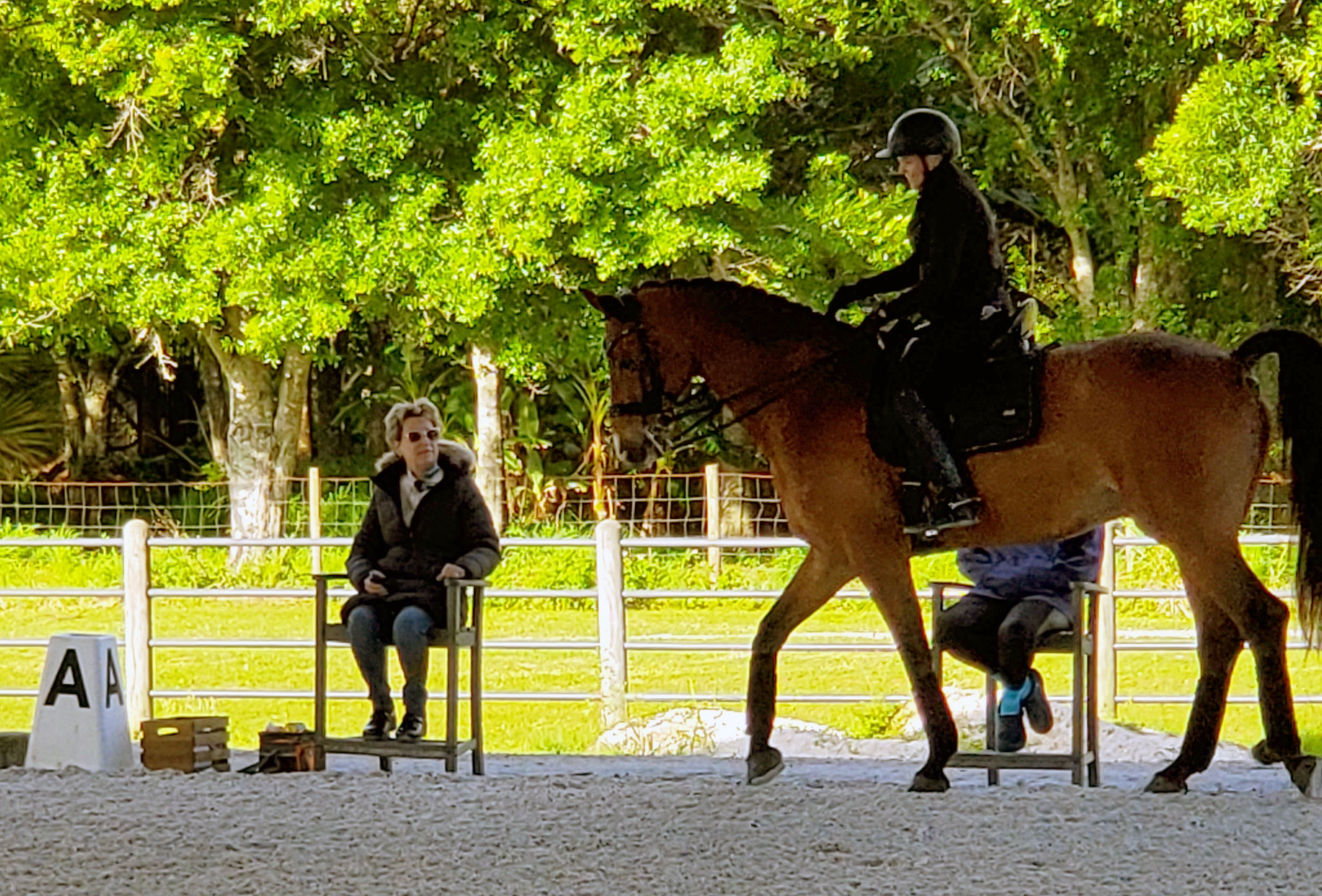
We are thrilled to have Janet Foy joining us today. Janet is an FEI five-star dressage judge, young horse judge, and a U S E F S dressage. Judge. [00:24:00] Janet has judged all the major shows in the United States and Canada, including the North American young rider championships and the 2019 pan American games.
She judged the Paris world cup finals in 2018 and the 2019 European championships. Janet has been honored to judge many of the top CDI w and CDI five star competitions in the world, including the famous Achen five-star. Janet has also been to Australia and South America judging in Brazil and also judging the central American games in Bogota and the central American Caribbean games in Puerto Rico.
Janet is a former member of the AHSA and U S E F board of directors. As well as a former board member for USDF she currently serves on the dressage sport horse committee and the international disciplines council, and is a member of the U S D F L faculty. [00:25:00] Janet is the author of two books, dressage for the not so perfect horse and dressage Q and A with Janet Foy. When not traveling the world as a judge, she splits her time between Colorado Springs, Colorado and Wellington, Florida.
Janet. Thank you so much for being here with us today. I really appreciate you taking the time. We know you’ve been involved with horses and dressage for so many years, but how did it all get started for you?
Janet Foy: It started when I was five years old and my German grandfather, who was an animal lover, took my sister and I to riding lessons every Saturday morning. And then we would go over to this restaurant that had great big hamburgers and have lunch. So it was Western, it was a group lesson wasn’t much, but it got us really convinced we had to have horses. So we did that for a couple of years and I think Oh, I was probably 12 when [00:26:00] we convinced my parents to buy us a horse. And so my sister and I had been naughty and we had been going into the horse pasture that surrounded our house about a 1200 acre pasture. And we’d been with my girlfriends, we call it nabbing horses and we’d take our jump ropes and we put them around the horse’s neck, jump on and ride them around the pasture.
It was totally the most unsafe thing ever. We have no idea even if the horses were rideable, but we never got hurt. There was this one black horse that we really loved. So we found out he was for sale and he probably was mostly quarter horse. His name was snakes. So we bought snakes for $500. And we had to share the horse.
That was the first problem. And believe it or not, after we had gone into the pasture for months with our jump rope. Now that we own him, we couldn’t catch him. So we had to carry buckets of grain. And it was a huge pasture. So [00:27:00] sometimes it took 30, 40 minutes of walking up and down the Hills and looking for the herd of horses.
So that’s how I got started. That’s my grandfather totally instilled the love of horses in us. And in 1969 he took my sister and I to Europe for three months and. Obviously we went to the Spanish riding school and saw the performances and he was Austrian. We were able to go in and Pat the stallions, it was really an amazing experience.
Stephanie Ruff: Is that what sort of sparked your interest in dressage then?
Janet Foy: No, because living in Colorado, we didn’t have dressage. I didn’t even know what it meant. I guess that’s not true. We did pony club. The pony club version of dressage and when you’re a kid, dressage is not really fun. It’s more fun to do cross country and jumping play the pony club games and things like that.
So I actually became a rodeo queen. I rode Western we had some quarter horses, we had some Appaloosas and I did, I got bored with Western pleasure. So I did Western [00:28:00] riding and reining yeah. And then I got married and we moved to England. And I wanted to ride. So I joined the Oxford riding club and they happened to be going to a barn that was a dressage barn with Molly SIF.
And so I signed up for the group classes and then another girlfriend and I decided we needed more instruction. So we started going back for semi privates that it was pretty funny because the, we would have instruction. It was again, a group lesson. Ride shoulder in! And afterwards I’d look at my friend, do what the hell she’s talking about.
Nobody knows what she’s talking about. So we bought a book, on dressage Lockie Richards begin the right way. We went and had tea. Read the book. We’re like, okay, that’s what shoulder in is supposed to be. Yeah. And after that, because I just got really enthralled with this sport. It’s very similar. In a lot of ways to reining and Western riding.
And so I enrolled in the British horse society program, took the exams and passed. [00:29:00] So that’s how I got into dressage. Then we moved back to Colorado and I wanted a horse. So I bought an off the track thoroughbred that was half starved of standing in a field. And by the time I got her fit she was crazy like wild and But I guess I was the best rider in the barn because people were asking me to ride their horses and give them lessons.
I was really terrible. I knew nothing, but like I said, I was probably better than anybody there. So that’s how my career started. I have a degree in advertising and journalism, and then I actually was a public relations director for the Broadmoor hotel, which is a five star hotel. And I also did public relations for a film production company that did motivational speaking films.
But I just decided to quit my real job and play horsey as my mother called it and kept wondering when I was going to stop playing horsey thing.
Stephanie Ruff: Yeah. And you’re still doing it. So then [00:30:00] when did the whole judging part evolve?
Janet Foy: That’s an interesting story? Because I never really wanted to be a judge. That just didn’t really cross my mind.
I loved riding. I love training. I love showing and competing. And I never even thought about the other side of it. And we had a group in Colorado that wanted to do a small “r” judges program and they needed one more person. And I was the only other person in the whole area that had the riding scores to do it.
So they were all my friends and they talked me into it. And then I passed. Then I’m like, Oh my gosh. Now I’m a judge and I don’t know anything. So then I had to work really hard at learning something, being a better judge. So that’s how the judging got started.
Stephanie Ruff: Did you have anyone that inspired you early on or did you have any mentors along the way?
Janet Foy: I had a lot of them, my, my first one was Bodo Hangen and Bodo was working for temple farms and. [00:31:00] Another trainer at the barn, Julie Sadowsky was bringing him in once a month for clinics. And so I asked if I could sign up and she I’m like, okay. So she finally let me sign up.
And I’m riding my thoroughbred mare around wide awake who is, of course, nowhere on the bit. And he watched us for a while and he said, you’ll have to change the wording. You call yourself an instructor. You are s***. And I grew up in a household of German men. So I said I may be s***, , but I paid my money and you’ve got to start teaching me.
So after that, we were really good friends. So he was my first mentor and later I met Hilda Gurney and did a lot of work with her, went out there and worked with her when I ended up. Being qualified and going to the first in Silco, which was the first head to head national championship that they ever had in the middle of the [00:32:00] country.
I was invited with two horses. I was there looking around, looking at Robert Dover. Kay Meredith, Lendon Grey, Dennis Callan, all these people. Oh my gosh, Jon abling was there. Terrible Val. I was. So super impressed by I had a chance to meet all them and talk to them. And that I think was probably the biggest jump in my career because both the horses I qualified were five years old really tough horses.
And so I had met all these wonderful people that would come to Colorado to do clinics. So I started having once a month clinics at my barn with top people. Robert came for four years. Which was wonderful and it made a huge difference. I invited all the other instructors in the area to come and we had a great time and became very, a really cohesive group.
So yeah, I had a lot of mentors, like [00:33:00] Robert was one of course Dennis Calen was awesome. Yohannan was really inspiring. I rode with Yan Bellowman twice. Just which isn’t a lot, but still, I still can remember those lessons every with Kira twice. And I still remember those. So yeah. I was really lucky to have a bunch of great people really teach me good things.
Yeah. Ewe and. Betsy Steiner came for years. Yeah, really lucky.
Stephanie Ruff: And this might just segue. What are some of your memorable moments first as a rider and then as a judge?
Janet Foy: As a rider, of course, going to Silco was you can’t beat that. When I was riding the regional championships, where there were three of them, East coast, West coast, and middle of the country.
So when I would go to California, I was really a small fish in this amazing atmosphere. So when I could go to California [00:34:00] and win or be reserve champion, that was really exciting. That was really wonderful. Of course getting my bronze, silver, gold medals, all my grand Prix horses. I trained my students that I helped get their gold medals and really, I love teaching.
So just having my students be successful is a huge piece of that. And as far as judging Oh my gosh. How could it be cooler than to judge Aachen? The European championships was unbelievable. I also enjoyed the Pan-Am games and our shows here in the U S Devon is always memorable and very fun and yeah.
The Friday night for yourselves in Wellington can’t compare, but I’ve been really lucky as far as being able to judge all over the world. So I’ve seen Russia twice. I’ve been all through central America, South America, all through Europe. I’ve seen the world Australia a couple of times, [00:35:00] so it’s been a wonderful way to travel.
See the world, meet people am also do cool things. Yeah.
Stephanie Ruff: What’s your, what’s been your favorite spot? Do you have a favorite?
Janet Foy: I don’t, I have favorite spots for different reasons. I would say Aachen has the best shopping. The show in Salzburg or the show in Frankfurt are both around Christmas.
So the Christmas markets in Europe. Oh my gosh. Those are amazing. I judge for instance, Austria, which is the subpar ski show. And there is nothing like sitting in the judges’ booth being surrounded by the Alps in Innsbrook. It’s absolutely. I dunno, like being judging in God’s place, like God’s Rina it’s to me, the most beautiful arena I’ve ever been out for sure.
Yeah, there’s different, really special things about all the different places or, yeah.
Stephanie Ruff: So then, and maybe travel is one of your favorite parts [00:36:00] of the sport. But what are your favorite parts and what do you find difficult or challenging?
Janet Foy: The challenging is the traveling is getting here and getting home we all have, there’s probably a fascinating book in there about judges talking about travel experiences and horrible hotel experiences and food poisoning.
So that’s one of the difficulties for sure. The highlights, are my friends. I have colleagues all over the world. That I may only see twice a year, but as soon as I see them, it’s like I saw them yesterday. So it’s a really special group of people. It’s a family.
Stephanie Ruff: Yeah. So changing gears a little bit. Is there anything new with the USDF? Anything going on?
Janet Foy: Of course everything has been difficult with COVID. I know my committee, all the committees that run, we’ve all, we’ve had to have one [00:37:00] more and more meetings that we normally don’t have because we have to keep changing things because of the circumstances.
And I don’t know, with this new horse virus, how hopefully that will die down and quickly enough because that could be another devastating problem. The biggest thing I would say with USDF is two years ago, I’m pretty sure it was two years ago. USEF turned over the education and the examining of licensed officials.
They still do the licensing. So we’ve had a very productive two years with our committees. And the staff at USDF has been absolutely. Stellar, but we’ve had to redesign a lot of the programs, train people in USDF. And I think a couple of them didn’t realize what they were getting into, but we’ve run amazingly successful [00:38:00] programs, judges, forums.
We did a great young horse judges’ forum in Wellington last month. So that’s been a huge transition. For both of us, both federations.
Stephanie Ruff: Do you think COVID and the entire pandemic, do you think that’s changed USDF temporarily, or do you think it’s changed things going forward?
Janet Foy: It’s not going to change anything except that they now have in place strict protocols if something happens again. And maybe we won’t have to shut the sport down for so long. But when you’re talking about the health of people or the health of horses, you have to always, err on the side of caution and not be crazy. It really affected a lot of people’s livelihoods. And I think living in Florida, we’re in a different, it’s almost there’s no panic. I know.
Stephanie Ruff: I [00:39:00] agree.
Janet Foy: When the Europeans come here to judge, they are, first of all, they have to have a special letter from our Federation so that they can even get on the plane because they’re not even supposed to leave their country.
They’re supposed to be in quarrentine. I’m supposed to judge a show in Germany at the end of April. Right now I could not even go to Germany. Germany is totally shut down. Not just because of the horse virus, but also still because of COVID so I don’t know. It’ll be an interesting challenge. I think for everybody to see is the world cup going to happen?
Are the CDI’s going to go, how is Tokyo going to run? They told us to buy our tickets again for Tokyo. We’ve done that. They’ve sent us a playbook on all the protocols and how things are going to work. So right now we’re all going forward, which I hope happens for the athletes, that they all have a chance to go and compete.
It will be very different for the officials [00:40:00] because usually we enjoy restaurants and shopping and touristing, but it will be very strict hotel venue back to the hotel with COVID testing in between. I’m fully vaccinated. Some of our other judges are not, the other countries in Europe are very far behind the U S vaccinations.
So yeah, it’s I don’t have a crystal ball and everybody’s like living from day to day.
Stephanie Ruff: Still. but I’m sure after the disappointment of it being the Olympics, especially being canceled last year to this year, Still being in that position as to whether or not yes or no, has got to be really tough and really frustrating.
Janet Foy: I do believe the COVID issues have been handled and dealt with. So my more, my concern mainly is now with the horse virus and where that’s going to lead and we don’t know that, yeah.
Stephanie Ruff: Hopefully, hopefully nowhere. So one [00:41:00] of the questions I like to ask everybody, whenever I do an interview or something, is what do you think makes a good horse person?
Janet Foy: First of all, that they care for the animal that they’re animal lovers. I think there are a lot of people who ride and train that don’t, and it’s not about loving the horse. It’s about respecting the horse. Treating it humanely there. I think things that we all see, not just in dressage but other sports that you just can’t believe that people are doing that to animals.
So I have a very high level of how much I respect someone by how they treat their horses. And I think they have to have a skill. That they, they understand the horse’s potential, but also its limitations that there are too many horses that are pushed beyond their limitations. And it’s very sad to [00:42:00] see.
And a lot of times it’s not just that the riders are riding poorly with the double bridle and the horse’s the nose on the chest, and there’s no way they could do a third or fourth level test, but. That the trainer is telling the riders that that’s okay.. Now I’ve had students, myself that have said, I’m buying this Prix St. George horse, and I’m going to go show Prix St. George.
If you don’t like it, I’m going to get another trainer Like fine so yeah, the horse person has to really spend the time and the hours. It’s not even the money, it’s the hours and the time and the elbow grease to really take care of their horse and their tack and their. Where the horse lives and all those things.
Stephanie Ruff: I do want to thank you again for taking time today. I appreciate it. I enjoyed watching you this afternoon the whole day. And like I said I want to come back now so I can watch everybody again, but thank you so much. I really do appreciate it. I
Janet Foy: You’re welcome. You’re welcome. [00:43:00] I it turns out to be a good program for you.
Stephanie Ruff: Thanks again to Janet Foy for speaking with us. Thanks also to copper Hill farm in Vero beach, Florida. For allowing us to film Janet’s clinic there, you can look for videos from that clinic coming soon on DT on demand. We’d also like to thank SmartPak our sponsor for this episode. Be sure to visit them at www.smartpakequine.com.
Thanks for listening to the dressage today. Podcast. If you’ve missed any episodes or to subscribe, go to Apple podcasts, SoundCloud, Stitcher, or wherever you get your podcasts. While you’re there. Please rate and review the show. Learn more and read in-depth training articles at dressagetoday.com or you can visit our subscription video site,
ondemand.dressagetoday.com. Be sure to give us a follow on Facebook, [00:44:00] Instagram, Twitter, and Pinterest. Happy riding, and we’ll see you at X. The dressage today podcast is a production of the equine podcast network an entity of equine network, LLC.


